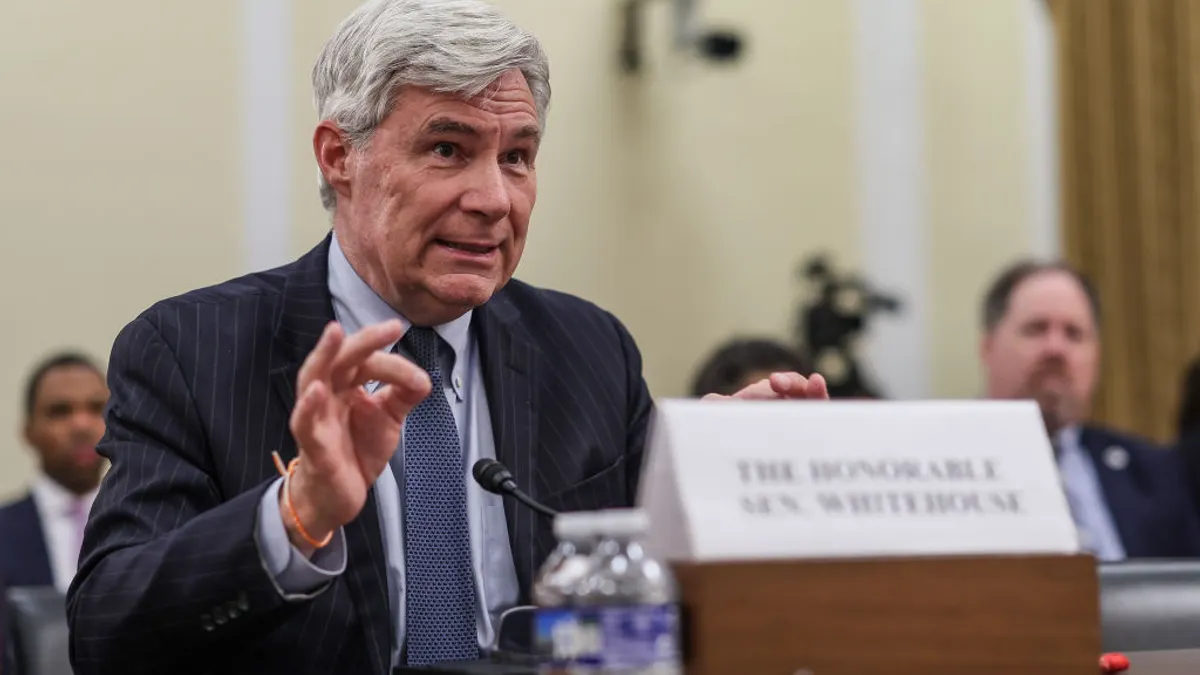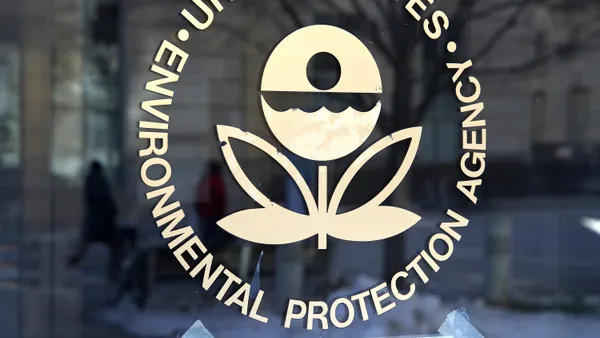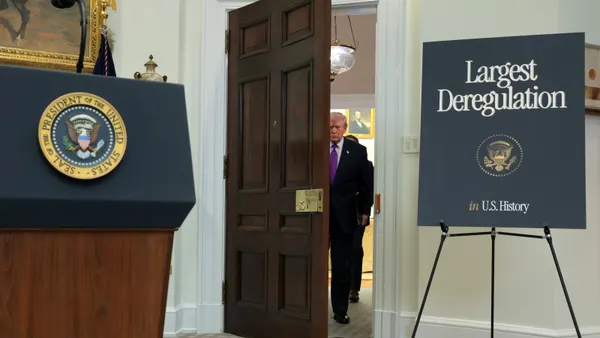Dive Brief:
- While the trade deal between the U.S. and European Union contained guarantees of “additional flexibilities” for U.S. companies to comply with the EU’s Carbon Border Adjustment Mechanism, Sen. Sheldon Whitehouse, D-R.I., said Wednesday that there is still a chance that the U.S. passes a bipartisan carbon tariff law in this Congress.
- “The prospects for a bipartisan agreement on a carbon border tariff are non-trivial,” Whitehouse said at a Climate Week NYC panel hosted by environmental nonprofit Ceres at the Nest Climate Campus. “They're real [prospects],” he added. “Can I say it's better than 50/50? I don't know, but it really is essential.”
- Sens. Whitehouse and Bill Cassidy, R-La., have each pushed for a U.S. CBAM bill and introduced their own versions of the legislation. Cassidy’s bill, the Foreign Pollution Fee Act, was introduced in the prior Congress, and marked the first formal climate risk-related legislation proposed by the Republican Party at the time.
Dive Insight:
NEW YORK — Carbon border adjustment mechanisms are taxes on products created outside of a jurisdiction that have higher levels of embodied carbon emissions than products made inside the jurisdiction do, on average.
Of the Intergovernmental Panel on Climate Change’s climate scenarios, just 11 pathways are left to get to “climate safety” and they all include a price on carbon emissions, Whitehouse said. Because of this, Whitehouse said the path to “climate safety” has become “very, very narrow.”
“There has to be a price on carbon emissions; it cannot be free to pollute,” he said. “The free to pollute business model is not economically correct, it's not morally correct, and it's environmentally disastrous.”
The Rhode Island lawmaker said there’s a growing global consensus on that point, referencing the EU’s CBAM, as well as indications that the U.K., Australia and Canada may join. Boston Consulting Group has estimated that over 65% of global public trade will be under a CBAM in the next five years, BCG Director and Partner Tim Mohin said at a Thursday Journal House UNGA event aligned with New York’s Climate Week.
“If you want to import your goods into those countries, and you're not as carbon clean as they are, you're going to have to pay for that,” Whitehouse said. “So that puts a price on carbon that applies globally.”
The Democratic senator said that without such a bill in the U.S., it would allow foreign countries who don’t abide by emissions standards to lower their costs and, ultimately, creates a “competitive problem for our American companies.” The Carbon Removal Alliance said in April that Cassidy’s bill, co-sponsored by Sen. Lindsey Graham, R-S.C., would also be a benefit to the U.S. carbon removal market by creating the “demand-side policy this industry needs to scale.”
While Whitehouse said his and Cassidy’s carbon tariff bills don’t match, they are in conversation and both working with some of the same groups on the legislation.
“We're starting from different fact positions. We're now just having a policy difference,” Whitehouse said. “So I think it can be done. The principles are sound. The bipartisanship is there.”













